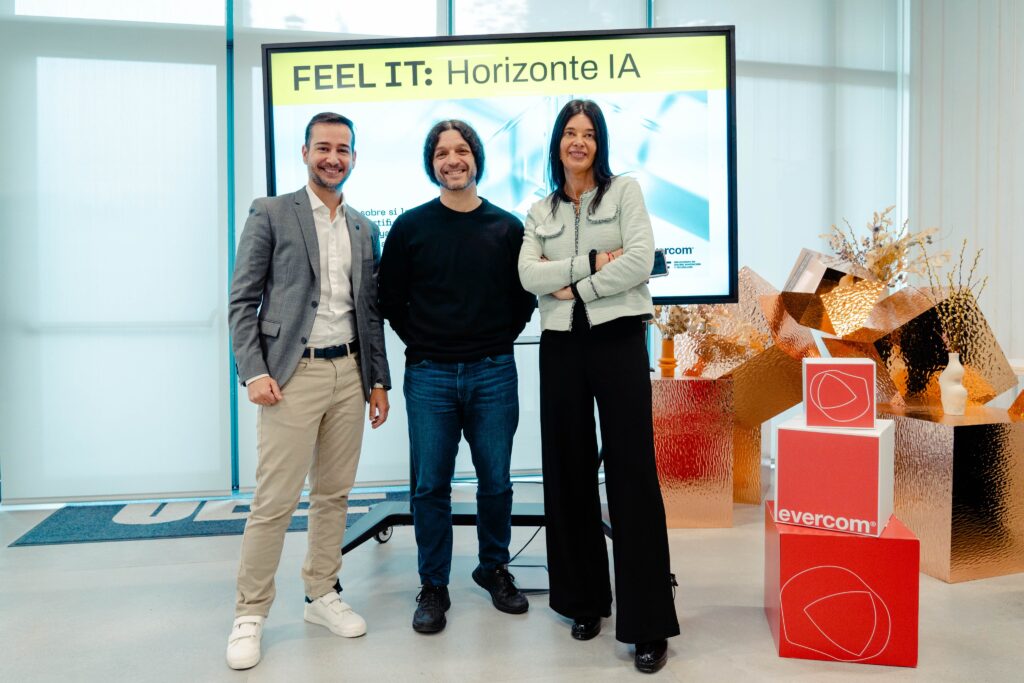The vast majority of Spanish companies already use Artificial Intelligence (AI) solutions and tools in their operations, including data and information analysis, process automation, and virtual assistants, among other use cases.
Spain’s use of AI is ahead of the global average, with 90% of Spanish companies reporting adoption of AI technology, compared to just 72% of companies worldwide, according to an early 2024 survey by consulting firm McKinsey.
AI has become a widely used component of the digital infrastructure that supports the present day, thanks to its transformative capacity, which is now “undisputed,” according to the ‘FEEL IT: AI Horizon’ report developed by the Evercom agency and the University of Design, Innovation, and Technology (UDIT) of Madrid.
The analysis provides an overview of how citizens and organisations in Spain perceive and use AI and the expectations, concerns, and challenges arising from its progressive adoption at all levels.
AI as part of the daily life
The study reveals that AI is part of daily life for most Spaniards, with 29.1% using it daily and 54.4% using it occasionally. Moreover, 91.3% of respondents express curiosity about the development of this technology. A recent study also showed that 62.1% of Spaniards reported purchasing products or services online based on personalised recommendations driven mainly by AI-boosted algorithms.
However, the report also highlights that enthusiasm for these resources is not without reservations. While 54.9% of respondents trust AI integration into daily life to some extent, concerns persist regarding privacy and transparency. Two-thirds (66.3%) of those surveyed call for stricter measures to protect personal data, and almost half (49.4%) believe it is essential to identify AI-generated content obligatorily.
Furthermore, according to Evercom and UDIT, 47.9% emphasise the need to improve education and training on these tools, indicating that knowledge of their applications remains limited.
The analysis finds that access to AI-related information is typically accessed through social media, with 44.1% of citizens using it as their primary source of information, followed by blogs and online articles (41.4%) and traditional media (40.9%).



AI in business
In the business sector, AI has become a must-use tool for most companies, with nine out of ten Spanish companies already utilising AI-driven solutions. Furthermore, of the remaining 10% that do not currently use these solutions, 60% plan to implement them in the short term for activities such as data analysis, process automation, and virtual assistants.
The report notes that 95% of organisations report positive results among those already using AI, which is why 76% of companies have planned to increase their AI investment in the upcoming year. Only 5.2% foresee reducing it. In the same vein, R&D budgets are set to increase in most companies’ 2025 budgets, according to a global Ayming survey.
While AI investment is on the rise, 15% of European companies plan to cut IT outsourcing spending, a record number, in a change of spending habits.
Concerning AI specialists, currently, 40.6% of companies have one on their teams, and this percentage is expected to rise, as 51% of these companies plan to hire additional AI experts in the near future.


